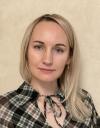Reference
- Sterligova E. A., Fortygina S. N. Formation of the readiness of future teachers to implement strategies for staging multicultural interaction [Electronic resource]. Vestnik Mininskogo universiteta [Vestnik of Minin University]. 2022. Vol. 10. No. 4. Electron. dan. URL: https://www.minin-vestnik.ru/jour/article/view/1346 (date of acсess 10.02.2023) (In Russ.)
- Frolova S. V. Sociocultural factors in the formation of a professional worldview of a modern teacher: challenges of the new world of education [Electronic resource]. Vestnik Mininskogo universiteta [Vestnik of Minin University]. 2022. Vol. 10. No. 2. Electron. dan. URL: https://www.minin-vestnik.ru/jour/article/view/1300/883 (date of acсess 05.02.2023). (In Russ.)
- Fedorov A. A., Mialkina E. V., Sedykh E. P., Zhitkova V. A. Model of managing the professional-educational route of a future specialist [Electronic resource]. Revista tempos e espacos educacao. 2021. No. 14 (33). Article Number e16325. Electron. dan. URL: https://www.semanticscholar.org/paper/Model-of-managing-the-professional-educational-of-a-Fedorov-Mialkina/5baf7db2d35986a7f12b810e8ddbf8367e8629c2 (date of acсess 10.02.2023).
- Moiseev N. N. System «Teacher» and the current environmental situation. Ekologiya i zhizn' [Ecology and life]. 2010. No. 2. P. 4‒7 (In Russ.)
- Nikolaev V. A. Landscape science. V.5. Historical and cultural study of the anthropogenic landscape. [Electronic resource]. Electron dan. URL: https://studfile.net/preview/3544377/page:21/ (date of acсess 02.03.2023).
- Vedenin Yu. A. Cultural landscape as a keeper of the historical memory of the earth. Regional'nye problem [Regional problems]. 2018. No. 21. P. 28‒34 (In Russ.)
- Cultural landscape as an object of heritage / ed. Yu. A. Vedenina, M. E. Kuleshova. Moscow; St. Petersburg, 2004. 620 p. (In Russ.)
- Ushinskij K. D. Collected works: In 11 volumes. T. 2. Moscow, 1952. P. 52‒53. (In Russ.)
- Demidova N. N., Vinokurova N. F., Zulharnaeva A. V., Loshchilova A. A. Designing an environmentally-oriented life of a student's personality in a cultural landscape: theoretical and methodological discourse. Nizhnij Novgorod, 2019. 220 p. (In Russ.)
- Vinokurova N. F., Loshchilova A. A. Transdisciplinary potential of the cultural landscape and its implementation in the environmental education of future teachers. Nepreryvnoe obrazovanie: XXI vek [Lifelong education: the XXI century]. 2022. No. 2 (38). P. 3‒17. DOI: 10.15393/j5.art.2022.7624 (In Russ.)
- Vinokurova N. F., Loshchilova A. A. Landscape education of schoolchildren: theory and educational practice. Nizhegorodskoe obrazovanie [Nizhny Novgorod education]. 2020. No. 2. P. 52‒58. (In Russ.)
- Loshchilova A. A. Integral approach to the selection and structuring of the content of landscape education. Problemy sovremennogo pedagogicheskogo obrazovaniya [Problems of modern pedagogical education]. 2021. No. 70-4. P. 229‒233 (In Russ.)
- Mukhina M. S. The concept of the phenomenon of personality [Electronic resource] Electron dan. URL: http://www.vfly.ru/koncepcia_fenomena_lichnosti.htm (date of acсess 03.02.2023).
- Transcommunication: transformation of human life worlds / ed. V. I. Kabrina. Tomsk, 2011. 400 p.
- Uilber K. Integral psychology: Consciousness, Spirit, Psychology, Therapy. Moscow, 2004. 412 p. (In Russ.)
- Mamedov N. M. Historical process and the concept of sustainable development. Vek globalizacii [The Age of Globalization]. 2010. No. 2 (6). P. 33-46. (In Russ.)
- Panov V. I. Ecopsychological approach to the development of the psyche: stages, prerequisites, constructs. Teoreticheskaya i eksperimental'naya psihologiya [Theoretical and experimental psychology]. 2022. Vol. 15. No. 3. (In Russ.)
- Chuprikova N. I. Consciousness in the functional system of mental reflection, regulation of behavior and activity [Electronic resource]. Metodologiya i istoriya psihologii [Methodology and history of psychology]. 2009. No. 1. Electron. dan. URL: https://psyjournals.ru/mip/2009/n1/43492.shtml (date of acсess 10.02.2023). (In Russ.)
- Babakova T. A. Ecological and local history approach in the implementation of education for sustainable development in a comprehensive school. Nepreryvnoe obrazovanie: XXI vek [Lifelong education: The XXI century]. 2018. No. 2 (22). DOI: 10.15393/j5.art.2018.3966 (In Russ.)
- Kochurov B. I., Vinokurova N. F., Smirnova V. M., Glebova O.V., Lobkovskij V. A. Culture of nature management: scientific and educational aspect. Problemy regional'noj ekologii [Problems of regional ecology]. 2014. No. 4. P. 159‒168. (In Russ.)
- Nikolina V. V., Loshchilova A. A., Aksyonov S. I., Lebedeva I. V. Evaluation of the effectiveness of the educational activity of the class teacher taking into account his professional and personal well-being. Perspektivy nauki i obrazovaniya. [Prospects of science and education]. 2022. Vol. 5 (59). P. 621‒640. DOI: 10.32744/pse.2022.5.37













